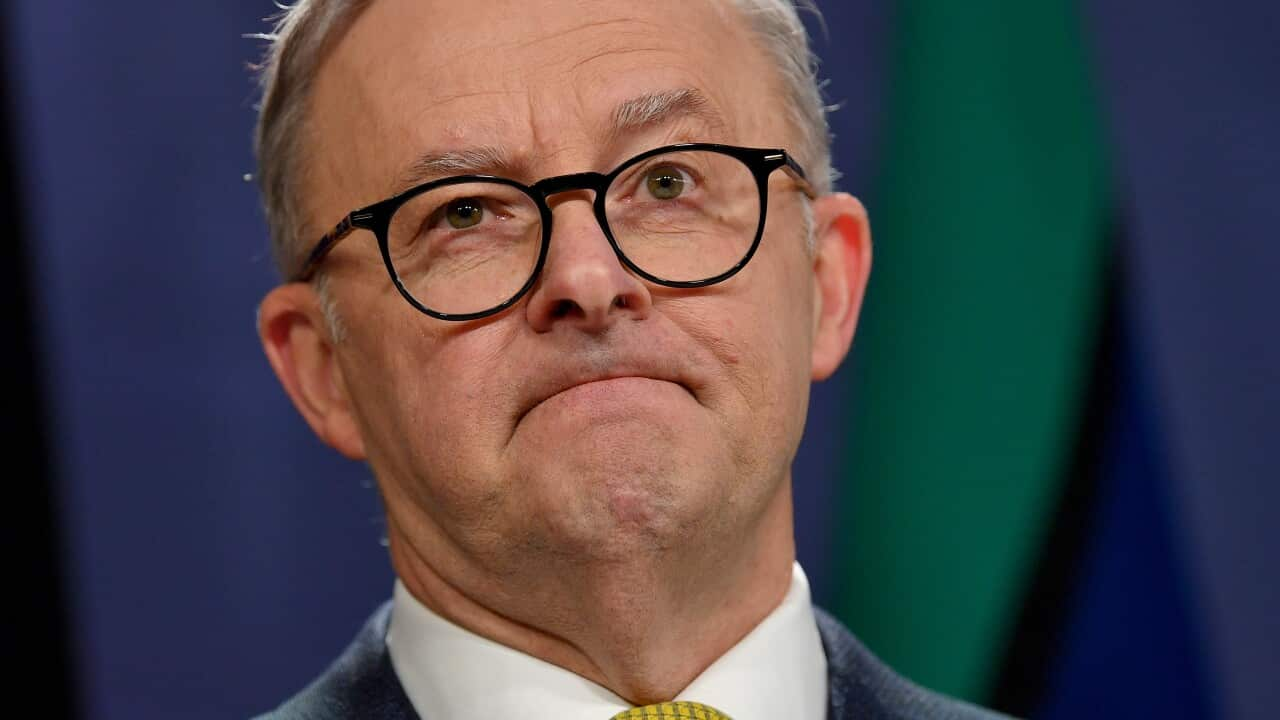Key Points
- Anthony Albanese has unveiled details of a royal commission into robodebt
- He called the scheme a "human tragedy"
The details of a royal commission into the have been unveiled by Prime Minister Anthony Albanese.
The automated matching of Australian Taxation Office and Centrelink data to raise debts against welfare recipients for money the Coalition government claimed to have overpaid was ruled unlawful by the Federal Court in 2019.
But the Morrison government has never detailed who was accountable for the scheme and which ministers knew of its problems.
"We know that almost 400,000 Australians fell victim to this cruel system. A human tragedy with very real consequences for its victims," Mr Albanese said.
Opposition leader Peter Dutton said the royal commission risked becoming a "witch hunt" if it did not also examine Labor's time in office.
"The data matching [regime] started under Labor when Minister Shorten was in that job [and] when Minister [Tanya] Plibersek was in that area," he said.
He said the prime minister "should be concentrating more on how we can help families and less on how we can get square with Scott Morrison".
The royal commission has been given $30 million in funding and will be based in Brisbane.
The Coalition has previously argued $750 million in reimbursements have been made and problems have been addressed.
Labor took the plan for the inquiry to the federal election, arguing robodebt was a "human tragedy".
Mr Albanese said decisions about witnesses and compensation would be left to the royal commissioner.
What will the royal commission investigate?
Catherine Holmes AC SC has been appointed to head the royal commission and will deliver her final report to the governor-general by 18 April 2023.
She has previously helmed an inquiry into the 2010-11 Queensland floods and served as counsel assisting the Commission of Inquiry into Abuse of Children in Queensland Institutions in 1998-99.
The royal commission will be tasked with establishing who was responsible for the scheme, what advice was used in its implementation and the complaints handling processes.
The government says it will focus on the decision-making of those in "positions of seniority."
It would also look at the cost to taxpayers of the debacle and harm caused to those targeted.
The use of third-party debt collectors as part of the robodebt scheme will also be examined.

The robodebt scheme, which matched Australian Taxation Office and Centrelink data to claw back welfare benefits, was deemed unlawful by the Federal Court. Source: SBS News
"As late back as 2016, there were members of the public flagging concerns that these debts weren't right, that there were problems with it, and we saw the government take no action whatsoever," Social Services Minister Amanda Rishworth said.
Government Services Minister Bill Shorten said a satisfactory explanation was yet to be given about "how this monster scheme got away from the system."
The robodebt scheme, which ran between 2015 and 2019, saw the then Liberal government raise more than $1.7 billion from more than 400,000 people.
The scheme was found to have wrongly recovered more than $750 million from 381,000 people.
Measures to recoup debts were by then Social Services Minister Scott Morrison and Human Services Minister Marise Payne in 2015, with the automated debt recovery scheme implemented by his successor Christian Porter.
In 2019, the scheme was axed under the then Government Services Minister Stuart Robert.











